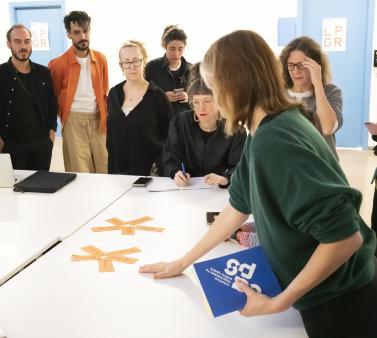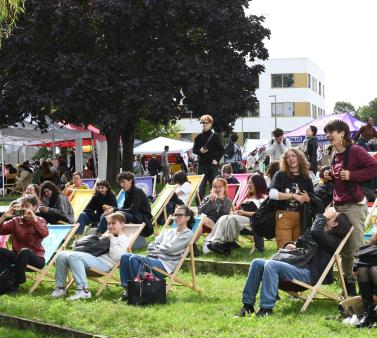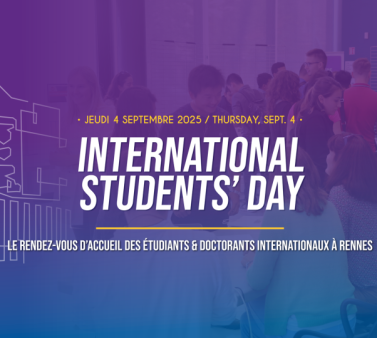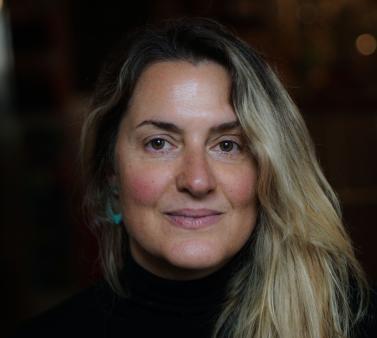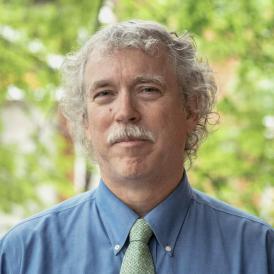
The Anglophonie : communautés et écritures (ACE) research unit is pleased to be hosting teacher and scholar Professor Ted Ownby. Well-known for his work in the fields of History and Southern Studies at the University of Mississippi, he has been Director of the Center for the Study of Southern Culture (a multi-disciplinary structure bringing together specialists in the literature, history, musicology and ethnology of the American South), holder of the William Winter Chair of History and Southern Studies, and a Fulbright Professor. He is the author of three books on the history of the American South: Subduing Satan (1990), American Dreams in Mississippi (1999), and Hurtin' Words(2017). He has also coedited multiple books including: The Mississippi Encyclopedia (2017) and The Larder: Food Studies from the American South.
On October 17th, he will be holding a lecture at the Institut Franco-Americain (IFA Rennes), called: Brotherhood and Brotherhoodism in the Civil Rights-Era South.
Could you please tell me about the links that the University of Mississippi has to Rennes 2? How did the collaboration begin?
Our university has had a relationship with Rennes 2 for several years, particularly as it relates to the legacy of William Faulkner, a native of Oxford (Mississippi). We’ve also been collaborating through the Faulkner-France Foundation, which is based in Rennes and promotes literary and cultural exchanges between France and the US. Thanks to the foundation, a specialized Faulkner Documentation Center was established in the Rennes 2 library. So there’s a tradition of cultural and academic collaboration and a number of Southern scholars have been invited by the city of Rennes and Rennes 2 University to different events over the years. For example, I believe that both Dr. Kathleen Wickham, Professor in Journalism and her husband Larry Wells (the nephew of William Faulkner by marriage) were here in 2019.
About a year ago, I was put in touch with Anthony Larson, Rennes 2 Senior Lecturer of Anglophone Studies and member of the ACE research center by the current Director of the Center for the Study of Southern Culture, Kathryn McKee. They had been discussing how to create different types of exchanges for the students. During the pandemic, they used Zoom to connect a group of our graduate students to 2nd year undergraduate students from Rennes 2 for the UEO class “Whose Country?”. The class (given in English), covers major events related to Southern regionalism in the history of the United States leading up to the American Civil War in 1861, and the persistence of this conflict in terms of memory and political and social order to the present day. The Mississippi students mentored the Rennes 2 students on a related topic of their choosing. After a successful first year, our universities were able to continue that cooperation the following year as well and my visit here is part of this ongoing project to reinforce and expand the collaboration between our two institutions.
What are some of the research topics you’re currently working on? And will they be the subject of your presentations while in Rennes?
I’m in the process of writing a series of stories, mostly about rather obscure people in Mississippi. I’m a co-editor of the Mississippi Encyclopedia and while I was working on that project I found that, whereas some topics have been very well-studied (like the civil rights movement, the blues, American writers, the American civil war), other topics and stories have not garnered so much focus. So I’m trying to bring attention to some of those stories by analyzing them through a lens that focuses on the micro-level — the stories of specific (and not well-known) people during moments that could be considered as historically significant. Each lecture that I’m giving is centered around a different story, a different chapter. The lecture I held last week was a seminar for PhD students of ACE and it was about a story entitled Miss Mississippi and Freedom Summer: Race, Pageants, Religion, and Silence in 1964.
Can you tell us a bit more about that story?
Well, that chapter looks at a white woman who was involved in the start of an American patriotic group in the early 1960’s as a teenager. She later went on to be a contestant and the winner of the Miss Mississippi Beauty Pageant in 1964. And as you may know, that was a turbulent year. It was Freedom Summer, with the Mississippi Summer Project (aimed at registering as many African-American voters of the state as possible), Freedom Schools and Freedom Houses. These were all campaigns that were designed to draw the nation's attention to the violent oppression experienced by Mississippi blacks when trying to exercise their constitutional rights.
So this woman went on to represent Mississippi in the national Miss America pageant. But once at the national level, she was surprised and horrified to find herself the object of criticism, hate mail and death threats for representing the state. So my lecture talked about that part of her life and about a later period, after she had married and left Mississippi. She decided to not talk about the pageant, or the hate mail, or the Freedom Summer, in response to the trauma she experienced. But by the 1980’s, she took a very different path and became a minister in California at a church that intentionally seeks to be very inclusive and promote anti-racism.
So in looking at an individual’s story, of someone dealing with issues related to race, gender, religion and so on, we can examine more complicated questions of the larger history, like: how did white Mississippians understand themselves to be innocent; and when did they go silent; and how did they respond to issues that they may or may not have been eager to confront?
And will your other talks be similar stories from the book you’re working on?
For the undergraduates, yes, I’ll be focusing on a different chapter which concerns the diary of a teenage young woman from 1915. My hope is that it will be an interesting way to think about everyday life, the kinds of things we can take away by looking at an ordinary, primary source of history. It’s really about finding methods to break down the macro history.

